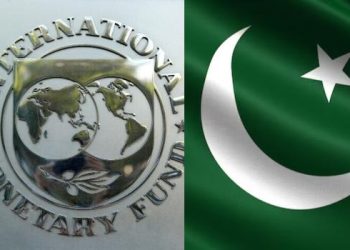ISLAMABAD: The IMF has advised the government to implement a uniform Federal Excise Duty (FED) rate on locally manufactured cigarettes regardless of the manufacturer’s origin, and to impose a Petroleum Development Levy (PDL) on machinery inputs that contribute to environmental pollution.
Additionally, the IMF has urged the FBR to incrementally raise excise taxes on domestically produced vehicles and luxury items such as yachts, while enhancing border controls to prevent the smuggling of oil derivatives, particularly from sensitive regions. The IMF has also recommended applying similar taxation to e-cigarettes as to tobacco due to their equivalent internal effects.
In its Technical Assistance Report to Pakistani authorities, the IMF has outlined these policy recommendations. The report suggests that in the medium term, once revenue increases, consideration should be given to reducing the number of items subject to federal excise duties, particularly those lacking negative externalities, significant revenue potential, very inelastic demand, or luxury characteristics.
The IMF notes that excises are currently levied on various items including tobacco, soft drinks, cars, cement, telecommunication services, and petroleum and natural gas products.
Regarding excise on petroleum products, the Petroleum Development Levy (PDL) represented 0.7 percent of GDP in FY2023.
Other excise revenues, primarily from FED on cigarettes, accounted for 0.4 percent of GDP. The PDL has fluctuated in recent years but experienced a substantial increase in FY23. The rate for petrol rose from Rs20 per liter in July 2022 to Rs60 per liter by September 2023.
The IMF highlights a policy change wherein petroleum products have been exempted from Sales Tax since March 2022. While Sales Tax revenues are shared with provinces under the NFC Award, PDL revenues remain with the federal government.
Despite a significant increase in the PDL rate, taxation of petroleum products has decreased since 2019. The total taxation rate on petrol was 29 percent of the sale price since 2019, declining to 19.6 percent in September 2023.
The IMF report suggests that removing the Sales Tax exemption for petroleum products would increase prices by 18 percent at the standard rate of General Sales Tax, placing gasoline prices slightly above the average for neighboring countries and emerging economies.
Similarly, FED rates on tobacco products were gradually raised between 2019 and 2022, with a substantial increase averaging 146 percent in February 2023. A survey cited by the IMF indicates that this increase led to a 20-25 percent decrease in cigarette consumption.
(Islamabad51_Newsdesk)














